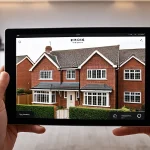Key UK Technological Advancements Shaping Healthcare
The UK healthcare technology landscape has seen remarkable strides with advancements in AI, telemedicine, and electronic health records. Medical innovation here focuses heavily on improving diagnostics and patient care through smarter data use. For example, NHS Digital leads the charge in building vast electronic health record systems, enabling seamless data access which boosts clinical decisions and patient monitoring.
Among the frontrunners, Babylon Health has revolutionized remote consultations by integrating AI-driven symptom checkers and virtual doctor visits, making care more accessible. Meanwhile, DeepMind Health showcases cutting-edge AI research that enhances diagnostic accuracy, particularly in imaging and disease prediction.
Also to discover : How Is Artificial Intelligence Revolutionizing the Future of Healthcare?
These breakthroughs collectively reshape how care providers approach treatment. Data-driven insights improve early detection and personalize therapy, while telemedicine expands reach to underserved communities. Through these technologies, the NHS and UK innovators set new benchmarks in healthcare delivery, combining digital infrastructure and scientific expertise to elevate patient outcomes and system efficiency.
Real-World Applications and Case Studies
Technology adoption in UK healthcare settings, especially within the NHS, demonstrates practical transformation. For instance, AI diagnostics have significantly improved detection accuracy in several NHS trusts. By analyzing medical images faster and with fewer errors, this technology supports clinicians in providing timely and reliable diagnoses. Remote consultation services, pioneered by firms like Babylon Health, have also expanded access to primary care, particularly benefiting patients in rural or underserved regions.
In parallel : How is the UK fostering tech talent in the education sector?
Digital health case studies within the UK highlight key successes. One regional NHS trust implemented AI-driven patient triage tools, reducing emergency department wait times and streamlining care pathways. Another clinic integrated electronic health records with telemedicine platforms, enabling seamless sharing of patient data and enhancing continuity of care.
The influence of UK healthcare technology adoption extends beyond national borders. Several UK-developed digital health solutions have been trialled internationally, reflecting the global recognition of NHS innovation. These case studies validate how British advances in healthcare technology adoption UK-wide not only improve patient access and outcomes but also set standards for digital health transformation worldwide.
Measurable Benefits and Observed Outcomes
Healthcare efficiency UK has seen substantial gains due to the integration of advanced technologies. For instance, AI-powered diagnostics contribute to faster and more accurate disease detection, resulting in improved patient outcomes technology-wide. NHS trusts report reductions in diagnostic errors and expedited treatment initiation, directly linking healthcare data impact to enhanced clinical decision-making.
Cost reduction emerges as a key benefit, with automation and digital workflows decreasing resource consumption. Time savings for healthcare providers manifest through streamlined administrative tasks, allowing clinicians to focus more on patient care. Patient feedback often highlights the convenience of remote consultation services and quicker access to medical results, reflecting positively on healthcare efficiency UK.
Clinician experiences reinforce these findings, noting improved work satisfaction when supported by reliable digital tools. Data from multiple digital health case studies confirm these improvements, showing measurable effects on waiting times, hospital admissions, and overall system throughput. Such results underscore how patient outcomes technology and healthcare data impact intertwine to elevate UK healthcare standards and shape future innovation directions.
Emerging Trends and Future Influence of UK Technology in Healthcare
The future of UK healthcare tech is driven by a robust healthcare innovation pipeline focused on integrating emerging technologies like AI, genomics, and wearable devices. UK institutions are pioneering research that aims to personalize patient care further and optimize healthcare delivery systems. These advancements benefit from increased government policies and strategic investments designed to accelerate digital health trends UK-wide.
One growing trend is the use of AI-enabled predictive analytics to anticipate health crises and prevent hospital admissions. Additionally, genomics research in the UK is playing a crucial role by enabling precision medicine, which tailors treatment based on individual genetic profiles. Wearable technology adoption is also expanding rapidly, offering real-time patient monitoring and promoting proactive health management.
Policy frameworks emphasize collaboration between the NHS, academia, and private sectors to translate innovations into real-world applications efficiently. Investment in infrastructure and skills development enhances the scalability of these innovations across the healthcare system. Looking ahead, the UK’s commitment to embracing future healthcare tech promises sustained improvements in care quality and system resilience, positioning it as a global leader in healthcare innovation.






